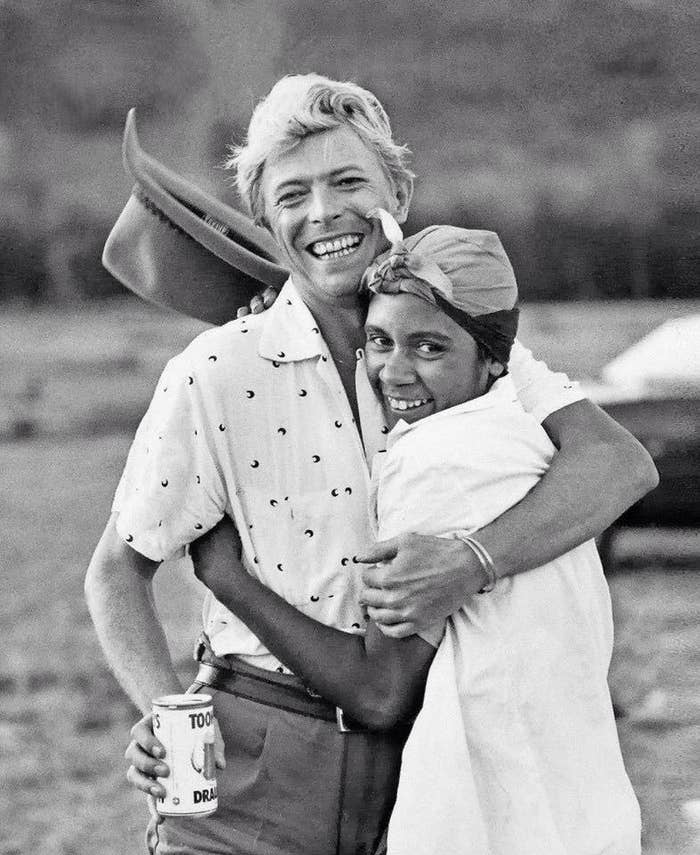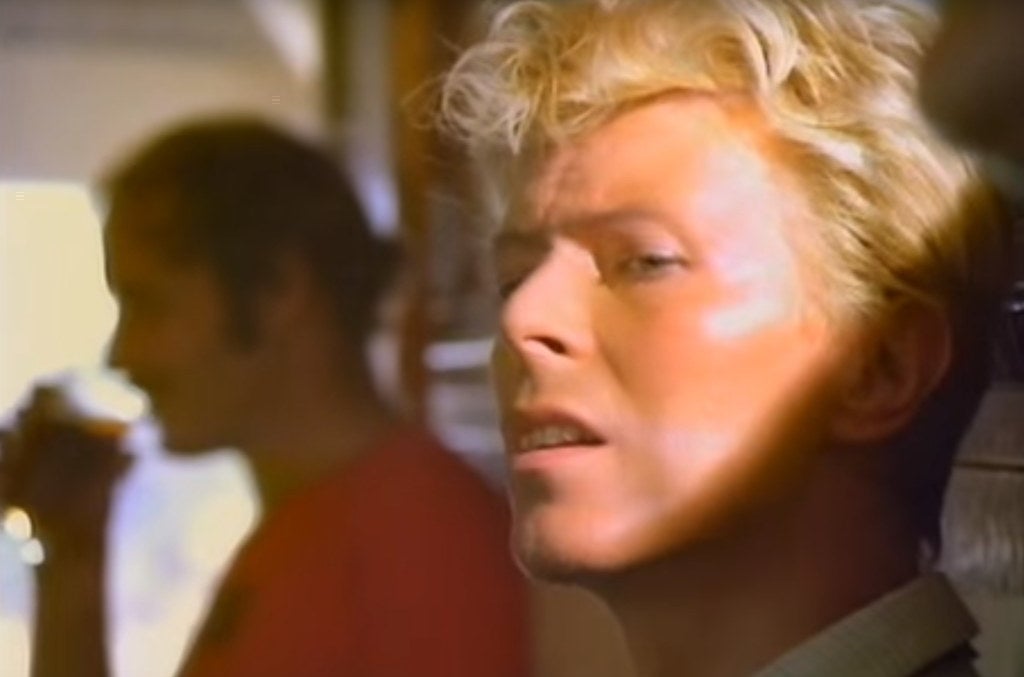David Bowie was mesmerised by the Australian outback, but beyond the natural beauty of the bush, he was also deeply disturbed by the racism directed at Australia's Indigenous people.
View this video on YouTube
"As much as I love this country ... it's probably one of the most racially intolerant in the world, well in line with South Africa," Bowie said in an interview with Rolling Stone magazine in 1983. "I mean, in the north, there's unbelievable intolerance."
"The Aborigines can't even buy their drinks in the same bars, they have to go round the back and get them through what's called a 'dog hatch.' And then they're forbidden from drinking them on the same side of the street as the bar; they have to go to the other side of the road."
There was little media attention given to the rampant discrimination Indigenous Australians endured on a daily basis in the early '80s.

The "Let's Dance" video featured several Indigenous people, with Aboriginal dancers Terry Roberts and Joelene King playing the protagonists.


"It showed the rest of the world that there are Indigenous people in Australia and we are not this textbook carbon copy of someone standing there with a spear. That there are modern Aboriginals," King says in Let's Dance: Bowie Down Under, a documentary about the making of the video which will screen as part of Sydney's Flickerfest.
"I just didn’t think that it would have a lot of influence on other people too, Aboriginal people too, and I am very proud of that, too."
The video jumps from a small outback pub to the rugged bush to the city of Sydney. At its heart, the story is of the dispossession of Indigenous people from their traditional lifestyle and the continuing oppression they face.

